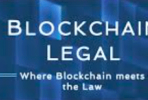Md. Imran Wahab
Md. Imran Wahab, a distinguished 2004-batch Indian Police Service officer, has dedicated over 32 years to public service, holding various senior managerial positions within the West Bengal Police force. His career has spanned diverse roles across different districts, including Kolkata Police, serving as DCP, 5th Battalion, Kolkata Armed Police and DCP (Port Division), Kolkata for approximately 4 years. He served in Barrackpore Police Commissionerate, holding the positions of DCP (Special Branch) and DCP (Traffic) for over 4 years. His tenure as Special IG and subsequently as IGP of Correctional Services, West Bengal, for over 4 years, saw him deeply engaged in improving the prison and correctional system. He visited numerous correctional homes across West Bengal, interacting with inmates, both male and female, including children residing with their incarcerated mothers. His outreach extended to correctional homes in Assam, Bihar, and Tripura. This hands-on approach provided him with invaluable insights into the workings of prisons and psychology of prisoners. Beyond his operational roles, Md. Imran Wahab possesses a strong academic background, holding B.Sc., M.A., L.L.B., and M.B.A. degrees. He has also completed Post Graduate Diplomas in Human Rights and Project Management. He has attended Indian government sponsored specialized training in police and management matters in SVPNPA, Hyderabad, IIM, Ahmedabad and in Singapore. He is the author of the book 'Police Investigation & Allied Matters,' demonstrating his commitment to knowledge sharing within the law enforcement field. As an observer for the Election Commission of India, he has gained firsthand experience in conducting assembly elections and bye-elections in Uttar Pradesh, Rajasthan, Assam, Bihar, and Tripura (twice). This exposure has given him a deep understanding of election management. He has authored over 600 articles on diverse topics.
Mitigating the Negative Impact of Social Media

Social media encompasses online platforms and applications that empower users to produce, distribute, and engage with content. These platforms foster communication, collaboration, and content s...
Epictetus: An In-Depth Exploration of His Philosophical Insights

The philosophy of Epictetus is firmly anchored in Stoic thought, emphasizing the critical distinction between what lies within our control and what does not. His teachings provide a framework f...
An Evaluation of the Private Security Agencies (Regulation) Act, 2005

The Private Security Agencies (Regulation) Act of 2005, often referred to as PSARA, was created to regulate the fast-expanding private security sector in India. Its main objectives include impr...
Evergreen and New Challenges Confronting Young Lawyers

The legal profession, renowned for its rigor and prestige, poses significant challenges for young lawyers entering the field. These challenges are a blend of "evergreen" issues, such ...
The Essential Commodities Act, 1955: Merits and Challenges

The Essential Commodities Act (ECA) of 1955 is an important piece of legislation in India aimed at ensuring the availability of essential goods while preventing hoarding and black marketing. Al...
The Relationship Between Law And The Dichotomy Of Control

The relationship between law and the dichotomy of control examines the equilibrium between human agency and societal governance. It examines how individuals' capacity to make decisions interact...
Can Individuals Released on Bail Be Summoned by Police for Interrogation?

Granting bail does not signify the end of the investigative process. According to Section 193 of the Bharatiya Nagarik Suraksha Sanhita (BNSS), 2023, police agencies are permitted to pursue the...
Why Police May Not Arrest the Accused Post-FIR: Reasons and Remedies

When police do not carry out the arrest of an accused person after a First Information Report (FIR) has been submitted, several reasons may underlie this decision. It is crucial for complainant...
Minority Status Of Aligarh Muslim University: Historical, Legal Analysis, And...

Founded in 1875 by Sir Syed Ahmad Khan as the Muhammadan Anglo-Oriental College and later renamed Aligarh Muslim University (AMU) under the Aligarh Muslim University Act of 1920, the institutio...
Prospective Bail in Indian Law: A Judicial Approach for Conditional and Futur...

Overview of Prospective Bail: Prospective or future bail is an innovative idea that is rarely applied; it refers to a type of bail issued by a court with the expectation of a future date, inst...
Can A Charge Sheet Be Filed Against A Retired Government Employee Without San...

Sanction acts as a protective measure, shielding public officials from unfair or vengeful prosecution for their actions taken while performing their duties. This mechanism ensures that decision...
Passport Revocation and Cancellation: Legal Challenges and Solutions

A passport serves as an essential travel document issued by a country's government, authorizing its holder to travel internationally and return to the home country. In India, the regulation of ...
The Doctrine of Necessity: A Critical Examination of Its Application and Impl...

The Doctrine of Necessity serves as a notable exception to the established principle of Natural Justice, which generally forbids individuals from adjudicating their own disputes due to the risk...
One Nation, One Election: A Critical Analysis

The concept of "One Nation, One Election" seeks to synchronize the electoral processes for the Lok Sabha and the State Legislative Assemblies in India. Advocates of this proposal argu...
Generalia Specialibus Non Derogant: Superiority of Special Law Over General Law

The Latin legal maxim "Generalia specialibus non derogant," which means "the general does not derogate from the specific," embodies a crucial principle in law. This doctrine...
Passport Impoundment: Grounds and Legal Remedies

The impounding of a passport refers to the temporary suspension of its validity by the authority that issued it. During this period, the passport is confiscated and cannot be utilized for trave...
Overseas Citizens of India-OCI: Eligibility and Responsibilities

Section 7 of the Citizenship Act of 1955 acknowledges individuals holding foreign passports who have a connection to India through birth or parentage as Overseas Citizens of India (OCIs). OCI r...
Can a Passport Be Denied for an Ongoing Criminal Case?

The Passports Act of 1967 regulates passport issuance in India, specifying grounds for denial, such as ongoing criminal proceedings. According to Section 6(2)(f), the passport authority can ref...
Role of Police in the Implementation of the Protection of Women from Domestic...

This article explores the critical role of police in enforcing the Protection of Women from Domestic Violence Act (PWDVA) of 2005 and delivering justice to victims of domestic violence. Utilizi...
The POSH Act: A Critical Analysis of Its Limitations and Impact

The Sexual Harassment of Women at Workplace (Prevention, Prohibition, and Redressal) Act, 2013, widely known as the POSH Act, was introduced in India to combat sexual harassment in workplaces a...
Role of Autopsy Surgeons in Determining Firearm Types in Fatal Shootings: Ins...

This paper investigates the essential role that forensic pathologist, commonly known as autopsy surgeon, plays in identifying the type of firearm involved in fatal shooting incidents. Although ...
Police Training in India: Navigating the Challenges and Forging the Future

This study examines the need for transformation of police training in response to modern challenges. A multifaceted approach is essential to merge current societal issues with technological inn...
Leveraging Databases for Effective Policing: A Strategic Approach to Modern L...

The incorporation of databases in law enforcement has significantly revolutionized policing by improving operational efficiencies, enhancing decision-making, and advancing crime prevention stra...
Assessing the Reliability and Evidentiary Value of Polygraph Tests

The polygraph test, commonly known as a lie detector test, assesses physiological reactions to evaluate honesty and deception. Despite its extensive usage in criminal investigations and many ot...
Emerging Security Threats and Strategic Countermeasures along India's Interna...

India's borders with Bangladesh and Myanmar are intricate and shaped by various geopolitical elements, resulting in considerable security issues that impact regional stability. These challenges...
Analysing the Vagueness and Shortcomings of Section 69 of the Bharatiya Nyaya...

Section 69 of the Bharatiya Nyaya Sanhita, 2023, makes it a crime to engage in sexual intercourse under false promises of marriage, thus offering legal protection to women against exploitation....
Reforming Strip Search Protocols in Prisons: Challenges, Standards and Solutions

In prisons, the practice of strip searches is a contentious method employed to uncover contraband and maintain safety. While these searches aim to curb the trafficking of firearms, narcotics, a...
Key Qualities, Manipulations, Negligence and Ethical Challenges in Postmortem...

The credibility of forensic investigations and the legal system as a whole are seriously threatened by manipulation, negligence, and unethical behaviour during postmortem examinations. Breaking...
Forensic Challenges and Risks Associated with DNA Fabrications

In the realm of forensic science, the development of synthetic or fabricated DNA poses significant challenges that bring forth concerns regarding the ethics and reliability of the justice syste...
Junk DNA: Is it Really Junk-or a Code Waiting to Be Cracked?

The idea that our genetic material contains Junk DNA is fading. Many DNA segments that were previously believed to be worthless now have important functions, according to recent studies. These ...
Understanding BNS Sections 238 and 61(2): Evidence Tampering, Supplying False...

This paper provides a detailed analysis of Sections 238 and 61(2) of the Bharatiya Nyaya Sanhita, 2023 (BNS), focusing on the implications of tampering with evidence or providing false informat...
Bharatiya Sakshya Adhiniyam, 2023: An Overview of Key Amendments

The Bharatiya Sakshya Adhiniyam, 2023 (BSA) represents a pivotal legislative development in Indian law, serving as a comprehensive update to the Indian Evidence Act of 1872. This new Act modern...
Understanding the Implications of Non-Accused DNA at Crime Scenes for Crimina...

While DNA evidence has revolutionized criminal investigations, its presence in legal cases becomes problematic when the DNA of non-accused individuals is detected at crime scenes. This essay ex...
Section 64A of the NDPS Act: Analysing the Immunity from Prosecution for Drug...

Section 64A of the Narcotic Drugs and Psychotropic Substances (NDPS) Act of 1985 provides immunity from prosecution for drug users charged under Section 27 or involved in minor drug offences, a...
Assessing the Reliability of Firearms Expert Reports: A Critical Analysis

This critical analysis investigates the dependability of firearms expert reports, which are admissible in evidence under Section 39(1) of the Bharatiya Sakshya Adhiniyam, 2023, in criminal inve...
Advocating Grant of Parole to Undertrial Prisoners through Legal Reforms: Pro...

Under Trial Prisoners (UTPs), who account for approximately 75-80% of India's prison population, face prolonged periods of detention largely due to systemic delays within the judicial framework...
Examining Wrongful Convictions Based on Fingerprint Evidence

Fingerprint evidence has long been seen as a cornerstone of forensic science, valued for its unique traits and reliability. However, some wrongful conviction cases reveal significant flaws in h...
Inadequate Postmortem Reports: Investigating the Underlying Factors

Postmortem reports play a vital role in forensic pathology, providing essential information about the causes of death needed for legal investigations. However, several factors undermine the qua...
Reasons for Potential Unreliability of DNA Evidence: A Critical Examination

DNA evidence is widely regarded as the "gold standard" in forensic science because of its capacity to accurately identify individuals and exonerate the innocent. However, several fact...
Shortcomings of the Bharatiya Nyaya Sanhita, 2023: An Analytical Perspective

The Bharatiya Nyaya Sanhita, 2023 was enacted on December 25, 2023, to supplant the Indian Penal Code of 1860, marking a significant reform in India's criminal justice system. This legislation,...
Challenges Afflicting Indian Courts

The Indian legal system faces numerous challenges that impact nearly every court across the nation. Key issues include a heavy caseload coupled with inadequate court facilities, personnel, and ...
Challenges Encountered by Police Officers During Crime Investigations

This study highlights the vital function of police officers involved in criminal investigations in maintaining the integrity of Indian society through effective law enforcement and fair justice...
VIP Security and the Special Protection Group: Overcoming Challenges in Indi...

The safety of high-profile individuals is a global priority. This article delves into the complex world of VIP security, examining the critical role and shortcomings of the Special Protection G...
Shortcomings of the Bharatiya Sakshya Adhiniyam, 2023: Challenges for Courts,...

The Bharatiya Sakshya Adhiniyam, 2023 (BSA) replacing the Indian Evidence Act, 1872 (IEA) introduces several new provisions that create challenges for courts, prisons, and police, impacting the...
Protecting the identity of Rape Victims and the Exceptions to This Protection

Protecting the anonymity of rape victims is crucial for upholding their dignity and mental health. The Bharatiya Nyaya Sanhita, 2023 (BNS), explicitly forbids revealing information that identif...
Media Trial: Balancing Press Freedom and the Right to a Fair Trial

This article, titled "Media Trial: Balancing Press Freedom and the Right to a Fair Trial," explores the complications arising from media trials, where intense and often exaggerated me...
Eyewitness Testimony: How Reliable is It?

This paper examines the intricacies associated with eyewitness testimony in legal settings, emphasizing its crucial role as evidence while also addressing its fundamental limitations. An eyewit...
Challenges Afflicting Prisons: A First-Hand Observation

Prisons encounter numerous challenges stemming from systemic, social, and administrative shortcomings. Overcrowding stands out as a significant problem, with facilities operating well beyond th...
A Comparative Analysis of Conciliation v/s Litigation: Pros and Cons from Ind...

Conciliation and litigation represent two alternative methods of resolving disputes, each with its own particular advantages and disadvantages. Understanding the relationship between these two ...
Weaponization of Social Media: Challenges and Responses

The use of social media as a tool for manipulation poses significant challenges worldwide, affecting public sentiment, intensifying divisions, and endangering democratic systems. This article i...
Challenges Faced by Female Inmates and the Effects of Inadequate Women's Prisons

Women's correctional facilities are integral to the criminal justice system, creating supportive environments that cater to the unique circumstances of female offenders. These specialized insti...
Character Evidence in Civil Cases: Clarifying Section 46 of the Bharatiya Sak...

The term 'character' encompasses both a person's reputation and their behavior. Nevertheless, one can only provide evidence of an individual's overall reputation and general behavior, rather th...
Enhancement Of Infrastructure Along International Borders And Its Influence O...

National security is a complex concept shaped by numerous factors, including diplomacy, economics, and military strength. Among these, the infrastructure along international borders plays a cru...
Election Related Offences in Bharatiya Nyaya Sanhita, 2023

Election-related offences include bribery, exerting improper influence, impersonating voters, inciting animosity between groups, spreading misleading information to manipulate election outcomes...
Legal Framework and Implications of Hate Speech in India

Hate speech encompasses any form of communication - spoken, written, or behavioural - that belittles, shames, or provokes violence or discrimination against individuals or groups based on chara...
Effective Strategies for Managing Substance Addiction among Incarcerated Popu...

Confronting substance use among prisoners is a complicated and multifaceted challenge. A substantial portion of the prison population grapples with substance use disorders, making it essential ...
Abuse of Police Authority in Hindering Voting by Marginalized Communities Dur...

The right to vote is a core element of democracy, allowing individuals to engage in governance. Nevertheless, marginalized communities, especially those from disadvantaged backgrounds and minor...
Vexatious Litigations: A Comprehensive Overview

Vexatious litigation refers to legal proceedings initiated with malicious intent and lacking reasonable justification, typically aimed at harassing or undermining an opponent. This type of liti...
Crimes Punishable By The Death Penalty In The Bharatiya Nyaya Sanhita, 2023 (...

Crimes that are subject to the death penalty encompass a range of serious offences, typically including heinous acts such as murder, particularly in cases of aggravated or premeditated killing,...
Overview of the Cigarettes and Other Tobacco Products Act (COTPA)

The Cigarettes and Other Tobacco Products Act (COTPA) is a pivotal legislation in India, focused on the regulation of the manufacture, sale, and consumption of tobacco products. Introduced in 2...
Building Bridges: Policing in Tribal Areas

Community policing in tribal regions is essential for connecting law enforcement with indigenous communities, acknowledging their unique cultural, social, and economic contexts. This approach f...
Legal Considerations Surrounding Miscarriage and Loss of a Child under the BN...

A miscarriage refers to the unintentional end of a pregnancy before the 20th week, frequently linked to chromosomal anomalies, though it can also stem from various factors such as health compli...
Flaws in the Bharatiya Nyaya Sanhita, 2023 (BNS)

The Bharatiya Nyaya Sanhita, 2023 (BNS) serves as the official criminal code for the Republic of India, marking a significant update to the country's legal framework. This new code officially t...
The Gig Economy: A Transformation in Work Dynamics in the 21st Century

The gig economy has swiftly become a prominent aspect of today's labour market, reshaping how individuals work and how businesses function. Defined by short-term contracts, freelancing, and ada...
Right to Disconnect: Major Overhaul in Employment Laws in Australia

Australia's employment law framework is experiencing major changes in 2024, driven by the implementation of new regulations aimed at addressing the shifting dynamics of work in a contemporary e...
Shortcomings in the BNSS (Bharatiya Nagarik Suraksha Sanhita, 2023)

The Bharatiya Nagarik Suraksha Sanhita, 2023 (BNSS), has been introduced as a replacement for the Criminal Procedure Code (CrPC) of 1973, signifying a major reform in India’s criminal justi...
Cybersquatting: An In-Depth Overview

Cybersquatting, often referred to as domain squatting, is the act of registering, selling, or utilizing domain names that closely resemble or are identical to the trademarks or brand names of e...
The Lanham Act: An In-Depth Examination

The Lanham Act, officially referred to as the Trademark Act of 1946, serves as a cornerstone of trademark law in the United States. Instituted on July 5, 1946, the act is named after Texas Repr...
Effective Strategies for Settling Legal Disputes: Exploring Alternative Dispu...

Alternative Dispute Resolutions (ADR), also referred to as Non-trial Resolutions or extrajudicial settlements, encompass various methods utilized to settle legal disputes without resorting to t...
Significance of Force Majeure and Pandemic Provisions Within Contract Law

Elaborating on the significance of force majeure clauses, especially in the context of the COVID-19 pandemic, offers a deeper insight into their function within contract law and risk management...
The Doctrine of Forum Non Conveniens

The doctrine of forum non conveniens is a concept in private international law that permits a court with the authority to hear a case to dismiss it if a more suitable forum exists. This princip...
Distinctions Between Common Law and Civil Law

Common Law and Civil Law represent the two foremost legal systems globally. They exhibit significant differences in their foundational principles, sources of law, procedures, and methods of ach...
International Arbitration And Cross-Border Litigation: Managing Complexities ...

Globalization has profoundly altered the legal landscape, bringing nations, corporations, and individuals into unprecedented proximity. This increased interconnectedness has led to a surge in c...
Key Provisions of the Waqf Act 1995 as Amended in 2013

The key provisions of the Waqf Act 1995 as amended in 2013 may be summarised as follows: The definition of "encroacher" has been expanded to include public and private institutions, as well a...
Overview of the Places of Worship (Special Provisions) Act, 1991

The Places of Worship (Special Provisions) Act, 1991, is a notable legislative measure in India aimed at preserving communal harmony by addressing delicate matters related to the status of reli...
Relational Contracts and Long-term Agreements

Contemporary contract law has developed to address the intricacies of ongoing business relationships that cannot be thoroughly encapsulated in conventional, one-time contracts. These enduring r...
Freedom of Contract and Consumer Protection

The contemporary landscape of contract law is increasingly influenced by a dedication to consumer protection, particularly regarding unfair contract terms. This shift illustrates a wider societ...
Contract Law, Smart Contracts and Blockchain Technology

Smart contracts and blockchain technology have brought about significant changes to conventional contract law, providing a more secure, efficient, and transparent method for executing agreement...
Waqf Tribunal: Challenging Its Decisions in Higher Courts

Section 83 of the Waqf Act, 1995 addresses the formation of the Waqf Tribunal. The provisions of this Section are as follows: The State Government shall establish, through a notification ...
Corporate Social Responsibility (CSR) and Ethical Contracting

Corporate Social Responsibility (CSR) has emerged as a vital element of contemporary business practices, shaping corporate policies as well as the legal frameworks that govern business conduct....
Globalization and Cross-Border Contracts

Globalization has significantly impacted contract law, influencing how businesses and individuals conduct cross-border transactions. As the world becomes more interconnected, companies are exte...
Waqf-alal-aulad: Definition, Historical Background, and Contemporary Relevance

Waqf-alal-aulad:In Islamic law, waqf refers to an endowment of property for religious or charitable purposes. Once designated as waqf, the property is non-transferable and cannot be sold, inher...
Analysis of Arjun Panditrao Khotkar v/s Kailash Kushanrao Gorantyal Case

The case of Arjun Panditrao Khotkar v. Kailash Kushanrao Gorantyal (2020) stands as a landmark ruling from the Supreme Court of India that profoundly influenced the admissibility of electronic ...
Impotentia Excusat Legem

The Latin legal maxim "Impotentia excusat legem" translates to "inability excuses from the law." This principle asserts that individuals cannot be held liable for not fulfil...
The Doctrine of Force Majeure in Contracts

The doctrine of force majeure is a legal principle that allows parties to a contract to be excused from fulfilling their obligations when an extraordinary event or circumstance beyond their con...
Lex Non Cogit Ad Impossibilia

"Lex non cogit ad impossibilia" is a Latin legal principle that means "the law does not compel the impossible." This concept is fundamental in legal systems globally, acting...
Redefining The Status Of Government Property In Relation To Waqf: A Critical ...
Waqf is a significant Islamic institution wherein properties are dedicated by individuals or entities for religious, charitable, or pious purposes, ensuring that these assets are held indefinit...
Analyzing The Ramifications Of The Removal Of Waqf By User In The Waqf (Amend...

The Waqf (Amendment) Bill, 2024 purportedly proposes to eliminate the acknowledgment of 'waqf by user' in order to streamline the legal framework and guarantee that all waqf properties are offi...
Buds Act: Banning Of Unregulated Deposit Schemes Act, 2019

Deposit Scheme:A deposit scheme is a financial arrangement whereby a person or entity gathers money from the public, generally with the commitment to return the funds after a designated period,...
Can The Essential Services Maintenance Act (ESMA), 1981 Be Enforced Against D...

The Essential Services Maintenance Act (ESMA) of 1981 is a pivotal law in India aimed at guaranteeing the seamless provision of essential services that are vital for public welfare and the effe...
Open Jails: Challenges for Women Prisoners

Open jails primarily aim at rehabilitating and reintegrating inmates into society, offering enhanced freedom and employment opportunities. They not only help reduce recidivism, mental health pr...
Recording of Confessions and Statements Under the Bharatiya Nagarik Suraksha ...

Section 183 BNSS deals with the recording of confessions of an accused person and statements of an accused person or a victim of rape or gang rape or acid attack etc. made to a Judicial Magistr...
The Illusion of Freedom: How Psychological Manipulation Shapes Perceptions of...

The phrase "The best way to keep a prisoner from escaping is to make sure he never knows he's in prison" conveys a significant notion regarding control, perception, and the essence of...
Mercy Petition: New Provision Under Section 472 of Bharatiya Nagarik Suraksha...

A mercy petition is a formal appeal submitted by individuals facing death sentences or imprisonment, requesting clemency from the President or Governor, depending on the jurisdiction. This prac...
Secondary Evidence under Bharatiya Sakshya Adhiniyam, 2023

Secondary evidence pertains to duplicates or alternatives of original documents that are not accessible. This encompasses certified copies, photocopies, and verbal descriptions of document info...
Admissibility of Electronic Records: Understanding Section 63 of the Bharatiy...

Section 65B of the Indian Evidence Act (IEA) was a significant amendment to the historic Indian Evidence Act of 1872, introduced following the Information Technology Act 2000, which came into e...
Summons in Bharatiya Nagarik Suraksha Sanhita, 2023 (BNSS) - Processes to Com...

A summons is an official legal document issued by a Court that informs an individual or organization about a legal action or proceeding that concerns them. It generally contains details about t...
Primary Evidence under Bharatiya Sakshya Adhiniyam, 2023

According to Section 57 of the Bharatiya Sakshya Adhiniyam, 2023, Primary Evidence consists of original documents or materials that are directly submitted in court. Section 62 of the Indian Evi...
Sweden Enacts Legislation to Reduce Legal Gender Change Age from 18 to 16

In April 2024, the Swedish parliament approved a law that decreases the minimum age for legally changing one's gender from 18 to 16 and facilitates access to surgical procedures. The measure...
Strip Searches in Prisons

Strip searches in correctional facilities are a controversial topic, involving a variety of legal, ethical, and practical issues. These searches usually entail the removal of clothing and, at t...
Popular Articles by Md. Imran Wahab
Mischief Rule of Interpretation: An Anal...

One of the ways to interpret laws or statutes is through the mischief rule, also called the Hey...
Kelsen's Pure Theory of Law

Introduction The concept of the "Pure Theory of Law" was developed by Hans Kelsen, an Austrian...
Grounds for Cancellation of Bail

Introduction Once a court grants bail to someone, it can take it back under certain circumstan...
Import of General Diary

Introduction A General Diary (GD), also known as a General Diary Entry or simply a Diary Entry...

